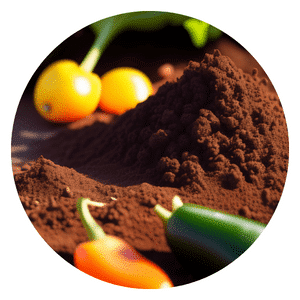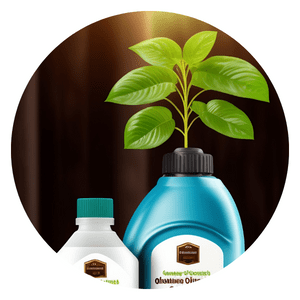How Many Eggplants Does A Single Plant Produce?
The number of eggplants produced by a single plant can vary depending on various factors such as growing conditions, plant health, and variety.
On average, a healthy and well-maintained eggplant plant can produce anywhere from 3 to 10 eggplants per plant throughout the growing season.
It’s important to note that eggplants require proper care and maintenance to maximize their productivity.
By implementing proper care practices and selecting productive varieties, you can optimize the yield of your eggplant plants and enjoy a bountiful harvest of this delicious and versatile vegetable.
Eggplant Produce Menu
Choose the right variety
When it comes to eggplants, choosing the right variety can make a significant difference in the yield and productivity of your plants.
Varieties like ‘Black Beauty’ and ‘Ichiban’ are known for their high yields, making them popular choices among growers. These varieties have been bred specifically to produce a large number of fruits per plant, ensuring that you get the most out of your garden or farm.
‘Black Beauty’ is a classic eggplant variety that has been widely grown for its excellent productivity. This variety typically produces dark purple, glossy fruits that are both flavorful and versatile in cooking.
With proper care and maintenance, each ‘Black Beauty’ plant can yield up to 10-15 eggplants throughout the growing season.
On the other hand, ‘Ichiban’ is another highly productive eggplant variety that is favored by many gardeners. It is an Asian type eggplant with long, slender fruits and a delicate flavor.
‘Ichiban’ plants tend to be more compact than some other varieties but compensate for this with their ability to produce numerous fruits per plant.
With proper care and favorable growing conditions, each ‘Ichiban’ plant can yield anywhere from 10-20 eggplants or more.
By selecting high-yielding varieties like ‘Black Beauty’ or ‘Ichiban,’ you can ensure that you have plenty of delicious eggplants to enjoy throughout the growing season while maximizing your harvest potential.
Provide adequate spacing
When it comes to growing eggplants, providing adequate spacing between each plant is crucial for their overall health and productivity.
By allowing sufficient space of 24-36 inches between each eggplant plant, you ensure proper air circulation and sunlight penetration. This spacing recommendation is essential for the plants to thrive and avoid overcrowding, which can lead to a host of problems such as disease susceptibility and reduced fruit production.
By providing ample space between the eggplant plants, you allow them to receive an adequate amount of sunlight.
Sunlight is crucial for photosynthesis, the process through which plants convert light energy into chemical energy needed for growth and fruit production. Insufficient sunlight can result in stunted growth and poor-quality fruits.
Additionally, proper air circulation helps prevent the buildup of moisture on the leaves, reducing the risk of fungal diseases that thrive in damp conditions.
Moreover, by giving each eggplant plant enough room to grow without competition from neighboring plants, you optimize their individual access to essential nutrients from the soil. This ensures that each plant can develop a strong root system and absorb nutrients efficiently.
With enough spacing provided, your eggplants have a higher chance of producing healthy yields with larger fruits compared to crowded plants that struggle for resources.
Remember that providing adequate spacing is not only beneficial for the individual plants but also promotes overall garden health by preventing the spread of diseases among closely spaced crops.
Optimal planting time
The optimal planting time for eggplants plays a crucial role in determining their yield.
Planting them after the danger of frost has passed ensures that they won’t be damaged by sudden drops in temperature.
Additionally, waiting for the soil temperature to reach around 60 F (15 C) allows the plants to establish themselves properly and promotes better growth.
Once the eggplants are planted at the right time, it is essential to know how many fruits a single plant can produce.
On average, a healthy and well-maintained eggplant plant can yield anywhere from 4 to 12 fruits per season.
However, this number can vary depending on various factors such as the variety of eggplant, environmental conditions, fertilization practices, and proper care given to each plant.
To maximize the fruit production of each eggplant plant, it is recommended to provide adequate support like stakes or cages to prevent branches from bending or breaking due to heavy fruit load.
Regular pruning should also be carried out by removing dead leaves and unnecessary stems to allow more energy distribution towards fruit development.
With proper care and attention, every gardener can enjoy a bountiful harvest of fresh and flavorful eggplants straight from their own backyard garden.
In a garden, where green reigns supreme, A lone eggplant stands, full of quiet esteem. With every dawn and every sunset's kiss, It blossoms and grows, filled with nature's sweet bliss. From its branches, tender purple pearls appear, Lavish gifts from Mother Earth, year after year. Growing abundantly, the plant never ceases, How many eggplants? The count simply increases.
Chappy The Gardener
Provide full sun
When it comes to growing eggplants, one of the crucial factors for their productivity is providing them with full sun.
Eggplants are sun-loving plants that require a minimum of 6-8 hours of direct sunlight daily to thrive and produce an abundant harvest.
By ensuring they receive this optimal amount of sunlight, you can significantly enhance their growth and fruiting capabilities.
Full sun exposure allows the eggplant plant to maximize its photosynthesis process, which is vital for producing energy and nutrients needed for growth.
The warmth from the sun also helps in maintaining an ideal temperature for the plants, aiding in their overall health.
When eggplants receive sufficient sunlight, they tend to grow taller, develop stronger stems and leaves, and eventually produce more fruits.
However, it’s important to note that excessive heat can be detrimental to eggplants too.
If temperatures consistently rise above 90°F (32°C), it may cause stress on the plants and hinder their ability to set fruits properly.
Therefore, while providing ample sunlight is essential for successful eggplant cultivation, keeping a close eye on temperature fluctuations is equally crucial for achieving optimal yields.
Maintain soil fertility
Maintaining soil fertility is crucial for the healthy growth and abundant fruit production of eggplants.
One effective method to achieve this is by preparing the soil with organic matter, such as compost or well-rotted manure.
These organic materials provide essential nutrients, including nitrogen, phosphorus, and potassium, which are vital for optimal plant development.
Compost is a mixture of decomposed organic materials like vegetable scraps and yard waste. It improves soil structure and enhances its ability to retain water and nutrients.
When added to the soil before planting eggplants, compost enriches it with humus that acts as a slow-release fertilizer.
Similarly, well-rotted manure also serves as an excellent source of organic matter rich in essential nutrients like nitrogen.
By incorporating either compost or well-rotted manure into the soil, gardeners can ensure that their eggplants receive all the necessary elements for robust growth and high fruit yield.
As eggplants require nutrient-rich soil to thrive, applying organic matter provides multiple benefits beyond nutrition alone.
Compost and well-rotted manure also enhance soil drainage while promoting beneficial microbial activity that aids in breaking down nutrients for easier absorption by plants’ roots.
Moreover, these organic amendments increase the overall fertility of the soil over time due to their ability to improve its structure by preventing compaction and erosion.
By preparing the soil with compost or well-rotted manure before growing eggplants, gardeners can create an ideal environment for successful cultivation.
Water consistently
Watering is a crucial aspect of growing eggplants, as it directly affects the yield and quality of the harvest.
It is important to keep the soil consistently moist, but not overly saturated.
Adequate moisture levels help in nutrient uptake and prevent stress on the plant, resulting in healthy growth and fruit development.
To achieve this, regular watering sessions are required, especially during hot and dry periods when water evaporates quickly.
When watering eggplants, it is essential to provide deep and even irrigation. Shallow watering may lead to shallow root growth and weaker plants.
To ensure proper moisture penetration throughout the root zone, consider using a drip irrigation system or slowly applying water at the base of each plant. This allows for efficient absorption by the roots without wasting water through runoff or evaporation.
In conclusion, maintaining consistent soil moisture is vital for maximizing eggplant production.
By providing adequate hydration through deep and even watering methods, gardeners can encourage vigorous growth and bountiful fruiting in their eggplant plants.
Mulch the soil
Mulching the soil around eggplant plants can greatly benefit their growth and productivity.
Applying a layer of organic mulch, such as straw or wood chips, at the base of the plants serves multiple purposes.
Firstly, it helps conserve moisture in the soil by preventing evaporation and reducing water runoff. This is particularly crucial for eggplants as they require consistent moisture levels to thrive.
Secondly, mulching helps suppress weeds that compete with the eggplant plants for nutrients and space.
By smothering weed growth, mulch reduces the need for manual weeding or using herbicides. This not only saves time but also prevents damage to the delicate eggplant roots during weed removal.
Lastly, organic mulch aids in maintaining a more stable soil temperature around the eggplant plants.
It acts as an insulating layer against extreme heat or cold, protecting the roots from temperature fluctuations that can hinder their growth and development.
With a stable soil temperature, eggplants have a better chance of producing more fruits since their energy isn’t diverted towards surviving harsh environmental conditions.
In conclusion, mulching is an essential practice when growing eggplants.
It conserves moisture in the soil, suppresses weeds effectively, and provides insulation against extreme temperatures – all factors that contribute to higher yields and healthier plants.
Support the plants
When it comes to eggplants, providing support for the plants is crucial.
The weight of the fruit can cause the plants to topple over, which not only damages the plant but also makes it harder for the fruit to develop properly.
By staking or caging the eggplant plants, you can ensure that they have the necessary support as they grow and produce heavy fruit. This simple practice can make a significant difference in the overall health and productivity of your eggplant plants.
Staking or caging also helps keep the fruit off the ground. When eggplants come into contact with soil, they are more prone to rotting and becoming damaged by pests or diseases.
By elevating them through staking or caging, you create a barrier between the fruit and potential threats on the ground.
Additionally, keeping them off the ground promotes better air circulation around each individual fruit, reducing humidity levels and minimizing fungal growth.
The number of eggplants a single plant produces varies depending on several factors such as variety, growing conditions, and care.
However, well-supported plants generally tend to produce higher yields than those left unsupported.
Staking or caging not only ensures healthier plants but also maximizes their productivity by allowing them to focus their energy on producing more fruits rather than trying to recover from damage caused by toppling over or being in contact with soil.
So if you want bountiful harvests of delicious eggplants from your garden, don’t forget to give them some extra support along their growth journey!
Prune for productivity
Pruning is an essential practice to maximize productivity in eggplant plants.
By regularly removing suckers and excessive foliage, the plant’s energy is redirected towards fruit production.
Suckers are small side shoots that emerge from the main stem or leaf axils of the plant.
While they may seem harmless, they divert nutrients and water away from the main stems and fruits. Therefore, removing them ensures that all resources are focused on developing larger and more abundant eggplants.
In addition to redirecting energy, pruning also improves air circulation around the plants.
Excessive foliage can create a dense canopy that restricts airflow within the plant bed. This stagnant air promotes moisture retention and increases the risk of fungal diseases such as powdery mildew or bacterial infections.
By thinning out excess foliage, pruned eggplant plants benefit from better ventilation, which helps prevent disease development and allows for faster drying after rain or irrigation.
Overall, diligent pruning practices play a significant role in increasing eggplant yield by promoting fruit development while reducing the risks of disease occurrence associated with poor air circulation.
Taking the time to prune regularly will not only result in healthier plants but also a bountiful harvest of delicious eggplants for your culinary endeavors.
Provide adequate nutrients
One of the key factors in maximizing eggplant production is providing adequate nutrients to the plants.
Eggplants are heavy feeders and require a well-balanced organic fertilizer or compost tea to thrive throughout the growing season. These fertilizers ensure that the plants receive all the necessary macronutrients, such as nitrogen, phosphorus, and potassium, as well as essential micronutrients.
By feeding eggplants with a balanced organic fertilizer or compost tea regularly, gardeners can promote optimal growth and fruit development.
The nutrients in these fertilizers help nourish the plants’ roots, leaves, and stems, which ultimately leads to healthier and more productive eggplants.
It is important to note that over-fertilizing should be avoided as it can result in excessive foliage growth at the expense of fruit production.
In conclusion, providing sufficient nutrients is crucial for maximizing eggplant production.
By using a balanced organic fertilizer or compost tea throughout the growing season, gardeners can ensure that their plants receive all the essential nutrients they need for robust growth and abundant fruiting. This practice not only supports healthy plant development but also contributes to overall yield optimization in eggplant cultivation.
Monitor pests and diseases
When it comes to growing eggplants, one of the key factors that can affect the yield is the presence of pests and diseases.
It is important for gardeners to monitor their plants closely and be on the lookout for any signs of infestation or infection.
Common pests that can attack eggplants include aphids, flea beetles, and tomato hornworms. These insects can cause damage to the leaves, stems, and fruits of the plants, ultimately reducing their productivity.
In addition to pests, eggplants are also susceptible to various diseases such as bacterial wilt, verticillium wilt, and powdery mildew. These diseases can weaken the plants’ immune system and hinder their growth potential.
By actively monitoring for any signs of these issues early on, gardeners can take appropriate measures to prevent or control them effectively. This may involve using organic pest control methods such as handpicking insects or introducing beneficial insects like ladybugs into the garden.
Regularly inspecting plants for any symptoms of diseases allows gardeners to apply appropriate fungicides or implement cultural practices like proper spacing and watering techniques that help mitigate these issues.
Overall, monitoring pests and diseases is crucial in maintaining healthy eggplant plants that are more likely to produce a high yield.
By taking proactive measures to prevent or control these problems from occurring or spreading within your garden plot, you can ensure that your eggplant harvest will be bountiful and free from any major setbacks caused by unwanted visitors or pathogens.
Harvest at the right time
When it comes to harvesting eggplants, timing is key.
Waiting for the eggplants to reach a desirable size and color is crucial for ensuring their optimal taste and texture.
Generally, eggplants should be harvested when they are firm and glossy, indicating that they have reached maturity.
This ensures that the fruit has developed its full flavor potential and will provide a satisfying eating experience.
Regularly picking the fruit not only ensures that you are enjoying your homegrown eggplants at their peak, but it also encourages the plant to continue producing more fruit.
By removing mature eggplants from the plant, you allow space for new growth and prevent overcrowding. This practice stimulates the plant’s natural response to reproduce by producing additional fruits throughout its growing season.
Knowing when to harvest your eggplant can help maximize your yield while maintaining the quality of each individual fruit.
By following these guidelines and being attentive to your plants’ development, you can enjoy a bountiful harvest of delicious homegrown eggplants throughout the growing season.
In conclusion, the number of eggplants that a single plant can produce varies depending on several factors such as the variety of the plant, the growing conditions, and proper care and maintenance.
On average, a healthy eggplant plant can yield anywhere from 4 to 8 fruits per season.
However, with optimal conditions and expert care, some gardeners have reported harvesting up to 20 or more eggplants from a single plant.
To maximize your eggplant harvest, it is crucial to provide adequate sunlight, water, and nutrients to the plants while also regularly monitoring for pests and diseases.
So why not give it a try?
Start growing your own eggplants today and enjoy the abundance of this versatile vegetable in your kitchen!
Click To Grow
Helps Us Grow – Share If You Like
















